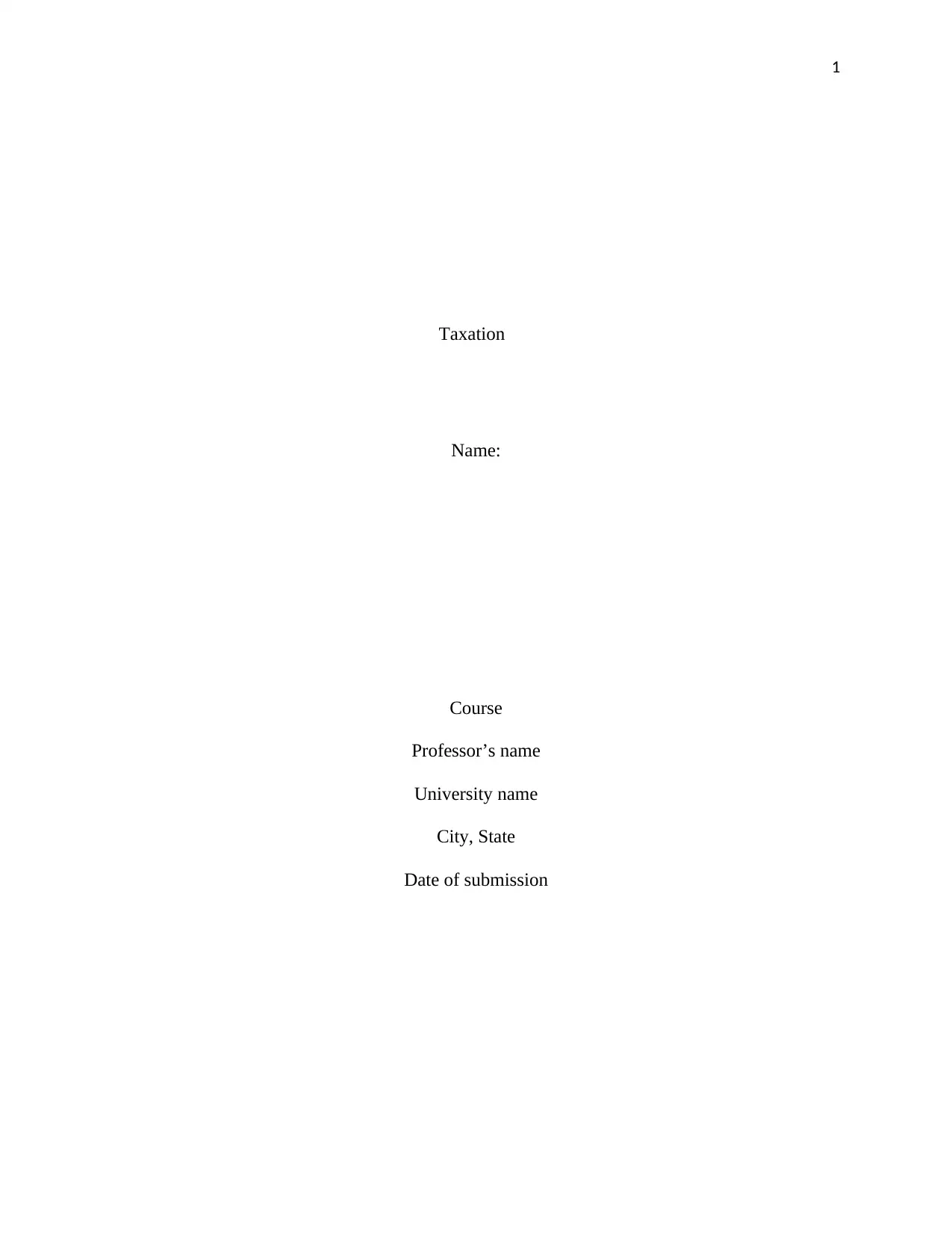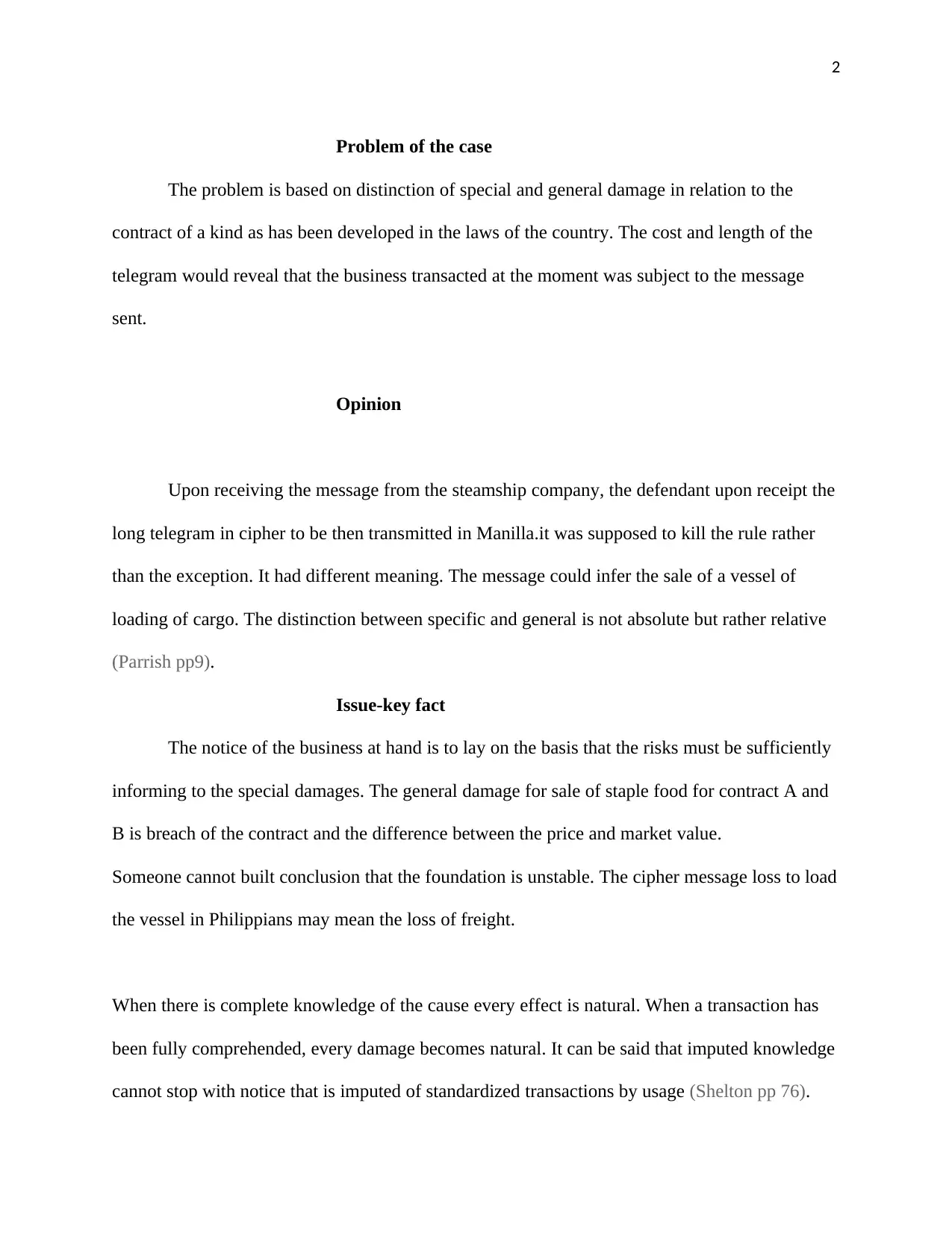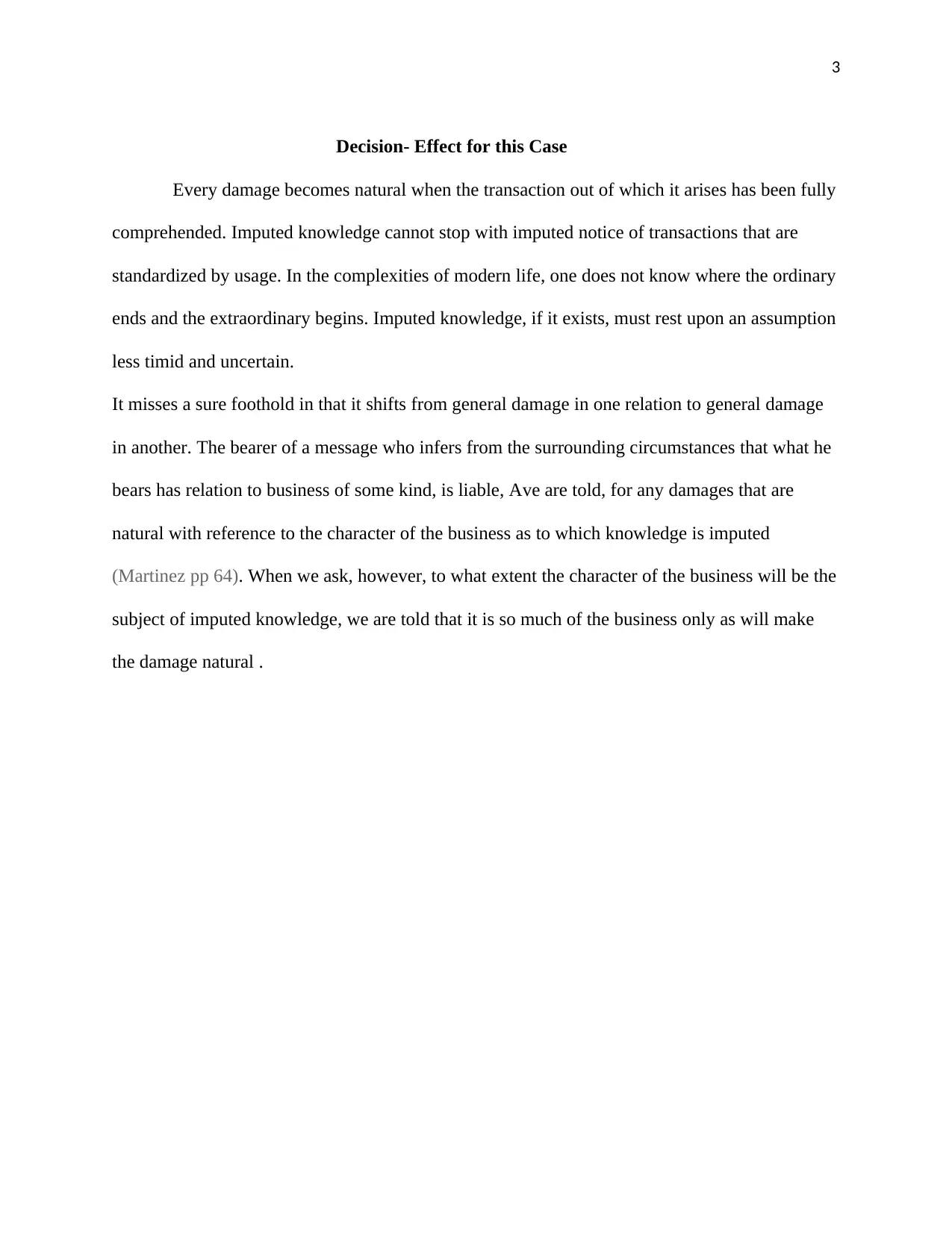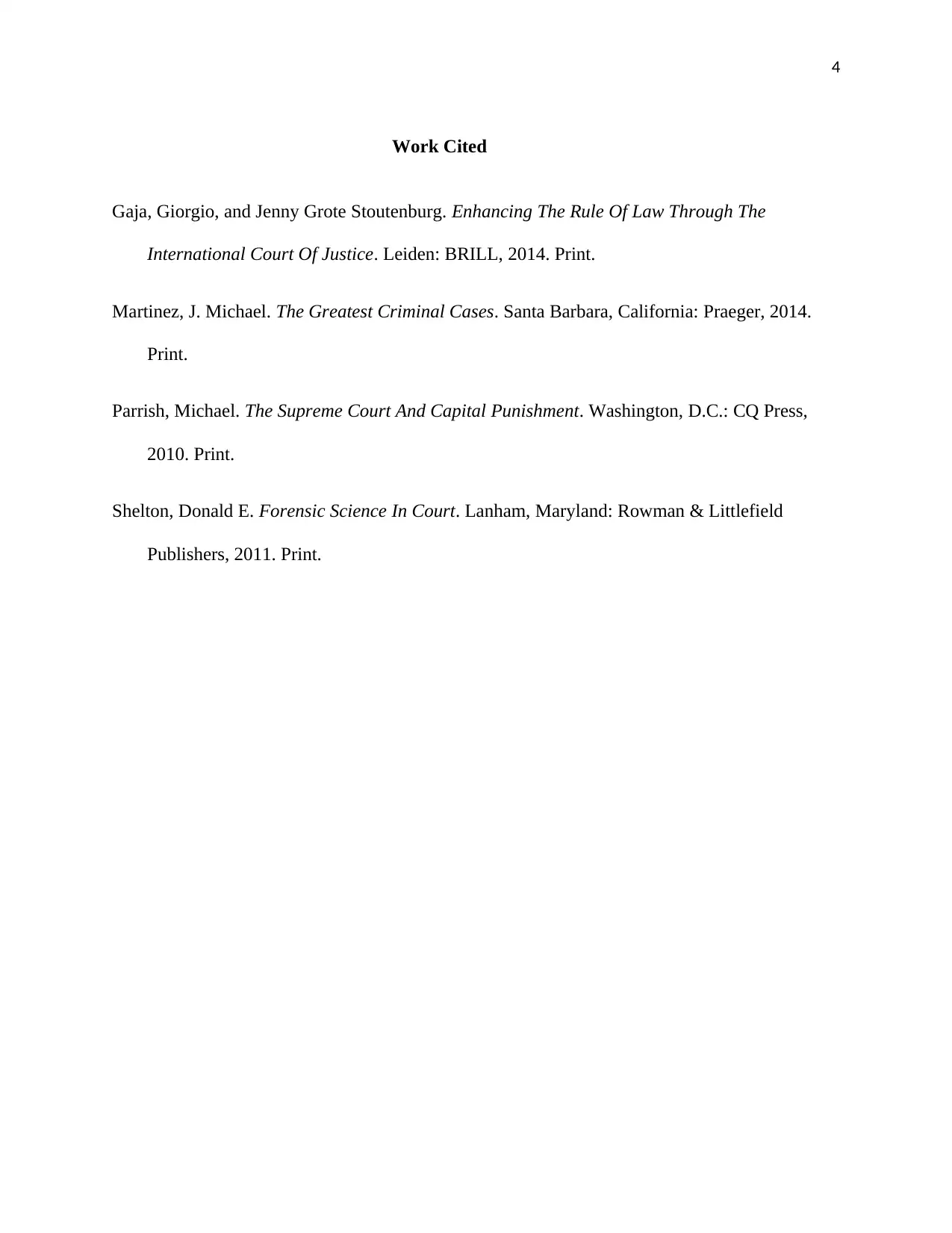Case Study on Taxation and Legal Principles: Contract and Damages
VerifiedAdded on 2021/04/24
|4
|570
|33
Case Study
AI Summary
This case study delves into the legal and taxation aspects of a business transaction, focusing on the distinction between special and general damages in contract law. The scenario involves a dispute arising from a telegram message and its implications for a business transaction. The assignment analyzes the concept of imputed knowledge and its relation to the understanding of business contexts, arguing that a party's knowledge of the business's nature can influence the assessment of damages. The case examines how the nature of the business can impact the understanding of damages, and how the nature of the business affects the assessment of damages. It concludes that imputed knowledge and the extent of the damages related to the business should be considered when assessing the liability and the nature of the damages. The case study relies on legal principles and precedents to analyze the implications of the damages and contract law.
1 out of 4





![[object Object]](/_next/static/media/star-bottom.7253800d.svg)